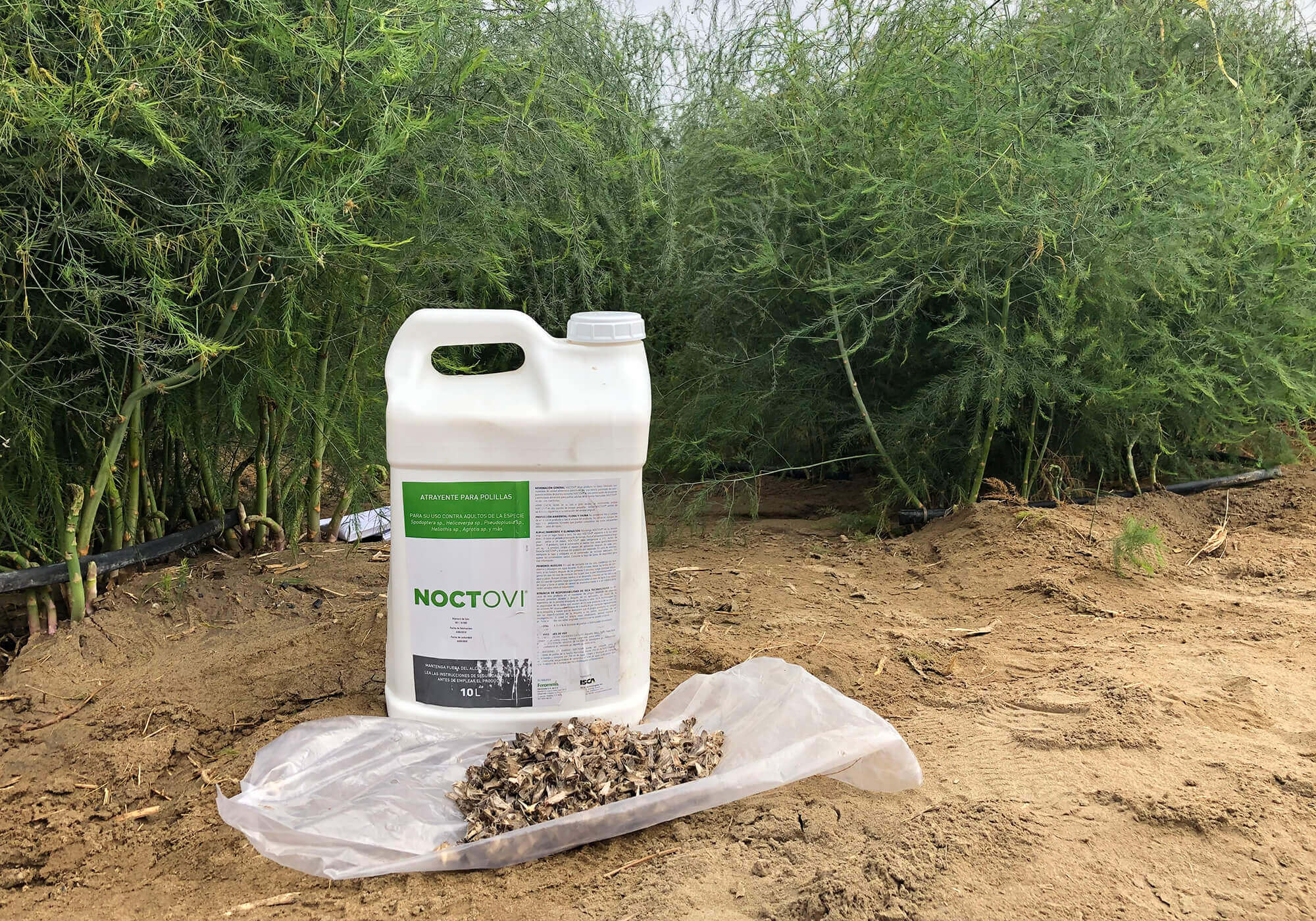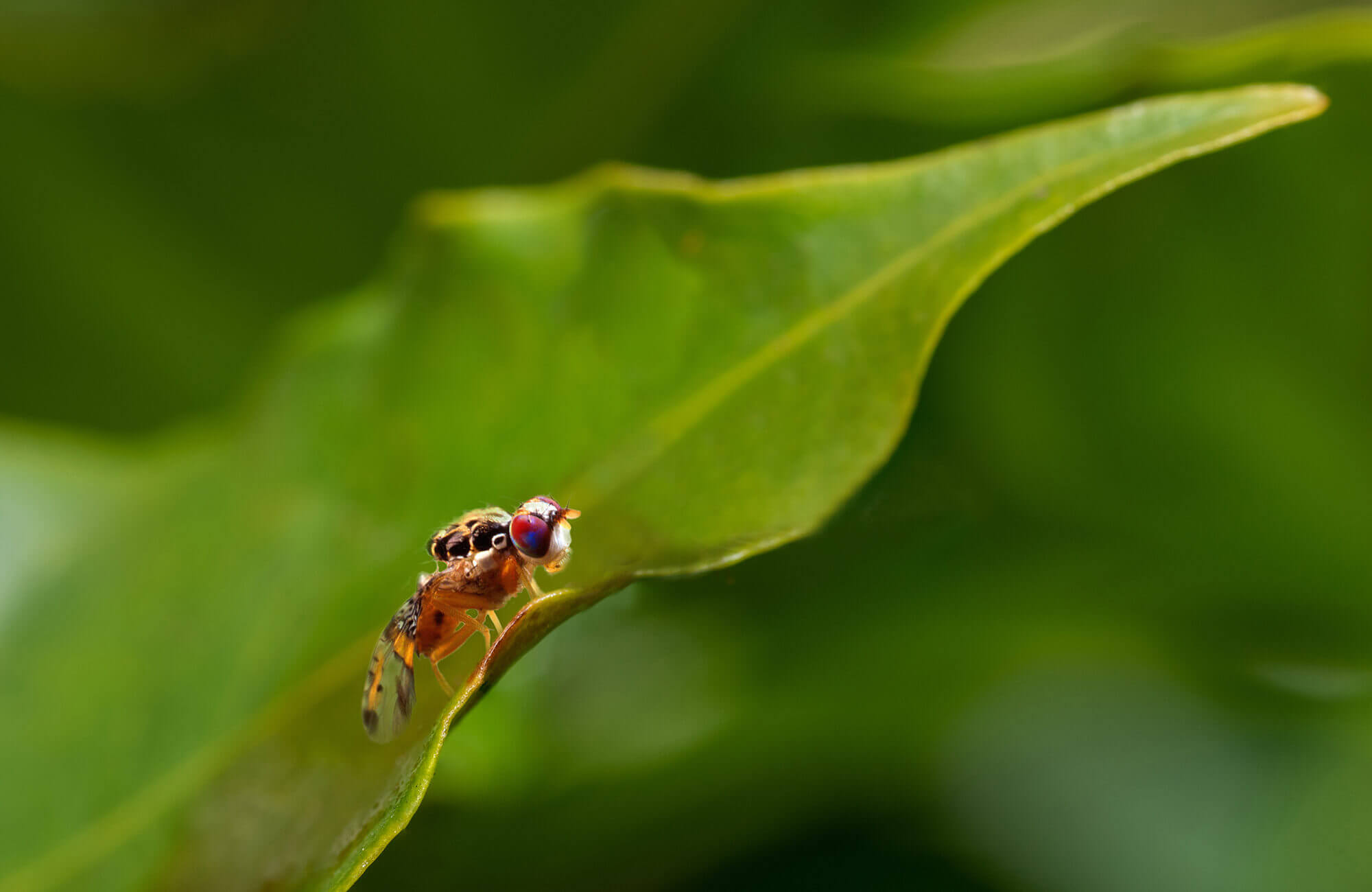


APIS BLOOM is an attractant that directs bees to areas that most need pollination, increasing the frequency and effectiveness of visits, as in this almond plantation.

The product is applied to the tree branch, without coming into contact with the flower.

With APIS BLOOM, this broccoli plantation in Yuma, Arizona had substantially larger seed yield due to a increased in bee visitation

APIS BLOOM applied to the broccoli leaf

After applying APIS BLOOM, bees immediately start visiting the crop

APIS BLOOM helps to better distribute pollination in crops
A recent study by Rutgers University on the global decline in bee populations, published in Nature Ecology & Evolution, has brought new and worrying revelations. A group of 25 agricultural crops grown in 85 different countries are losing crop yields due to pollination deficiency. The research revealed that the lack of pollinators, especially bees, is compromising the productivity of essential crops such as fruits, vegetables, nuts and legumes. This limited pollination not only reduces crop yields, but also poses a significant risk to global food security. Without adequate pollination, plant fertilization is impaired, resulting in smaller and poorly formed fruits, directly affecting the ability to provide food for a growing global population. A major challenge faced by farmers is the lack of effective strategies to integrate bees into agricultural management. Many still do not use methods that maximize the potential of bees to improve pollination. The lack of practices to optimize pollination represents a significant obstacle to sustainable and efficient agricultural production. Overcoming this challenge can have a transformative impact on agriculture. Implementing strategies that improve pollination can lead to an increase in the quantity and quality of crops, benefiting both productivity and sustainability. Integrating methods that promote more effective pollination is essential to ensure a more balanced and environmentally responsible agriculture, in addition to contributing to global food security. An innovative solution to help address this crisis is APIS BLOOM, developed by ISCA Tecnologias. This product was designed to attract more bees to agricultural areas, improving flower pollination. APIS BLOOM works as an attractant that directs bees to the areas most in need of pollination, increasing the frequency and effectiveness of their visits. As a result, fruits tend to be larger and better formed, and crops become more abundant and of better quality. In addition, the product can be easily integrated into existing agricultural management systems, offering a practical and efficient approach to optimizing pollination. Improving pollination efficiency can not only increase crop productivity, but also help ensure a more sustainable and secure agriculture for the future.

ISCA and De Sangosse teams verify results of product attracts and kills in the Brazilian cerrado
Insects have long plagued our crops, health and ecosystems. Traditional chemical crop protection is not the only answer - semiochemicals enter the picture!
De Sangosse, with operations in over 60 countries, has consistently advocated for sustainable crop management. With ISCA′s innovative methods, which use the scents of nature to manage insect behavior, a greener future in crop protection looks more promising than ever!
Together, we are offering:
• Ecological solutions without waste
• Improved crop yields
• Sustainable management practices against insect resistance
• Safer environments for farm workers
• A robust response to society′s call for less reliance on conventional chemicals
Nicolas Fillon, CEO of De Sangosse Group, said: "With ISCA, our vision of a greener and healthier planet becomes even more tangible."
Agenor Mafra-Neto, PhD. CEO of ISCA Inc., adds: "Our combined strengths expand the potential for sustainable insect management around the world."
In the Brazilian Cerrado, grain and fiber growers are adopting a novel method to control insects known as "attract-and-kill." They use NOCTOVI, a food attractant for moths produced by ISCA, combined with a small amount of insecticide: a lethal combination for targeted pests. NOCTOVI effectively attracts and stimulates the moths, which upon consumption are terminated. As moths are killed, their reproduction cycles are interrupted, thus preventing further caterpillar damage, effectively protecting crops.

The combination of NOCTOVI with tiny amounts of insecticide is highly lethal to target pests when ingested, eliminating moths before they reproduce

The Mediterranean fruit fly is a key pest of numerous Brazilian crops
In agriculture, insecticide-resistant pests have become a major issue. Mango growers report fruit fly pests′ increasing resistance to conventional control methods, resulting in the necessity for stronger doses and more frequent insecticide applications. Fruit growers in the Vale do São Francisco in Brazil have struggled to maintain control over fruit flies with conventional pest control methods.
ISCA′s product, ANAMED WB is a solution for fruit fly pest control and resistance to insecticides. This formulation attracts fruit flies with the power of semiochemicals together with a small amount of an insecticide which is lethal to the targeted pest. ANAMED WB is one of the most effective fruit fly attractants available and outlasts competing products in the field. This product can be used with insecticide with different modes of action, which reduces the risk of pest resistance.
These formulation characteristics enable fewer applications, increase the adult fruit fly mortality and the option for producers to rotate insecticides with different modes of action, thereby increasing effectiveness.